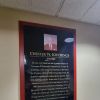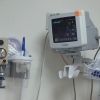How to Recognize the Early Symptoms of Heart Disease: Key Signs to Watch For
- Common Early Symptoms of Heart Disease
- Lesser-Known Signs of Heart Disease
- Case Study: Recognizing Heart Disease Early
- Why Early Diagnosis of Heart Disease Matters
- When Should You See a Doctor About Heart Disease Symptoms?
1. Common Early Symptoms of Heart Disease
Heart disease is one of the leading causes of death worldwide, yet many people aren’t aware of the early warning signs. Over the years, I’ve come to realize how important it is to listen to your body and recognize the subtle symptoms that may point to heart problems. In my experience, knowing the common early symptoms of heart disease can help you seek medical attention before it’s too late.
Some of the most common early symptoms include:
- Chest pain or discomfort: This can feel like pressure, tightness, or a squeezing sensation in the chest. While not all chest pain is heart-related, it’s important to take it seriously, especially if it’s accompanied by other symptoms.
- Shortness of breath: Feeling winded or out of breath during everyday activities like walking or climbing stairs can be a sign of heart disease, especially if it happens suddenly.
- Fatigue: Unusual tiredness or feeling excessively fatigued, even after a good night’s sleep, can indicate that your heart isn’t pumping as efficiently as it should.
As someone who has experienced chest discomfort myself, I can’t stress enough how important it is to monitor these symptoms and seek help when they appear. Heart disease symptoms often develop slowly, which means that early recognition can help you manage the condition more effectively.

2. Lesser-Known Signs of Heart Disease
In addition to the more obvious symptoms, there are several lesser-known signs of heart disease that can easily be overlooked. These signs might not immediately raise concerns, but they are worth paying attention to. Here are some lesser-known symptoms that I’ve learned can point to potential heart issues:
- Swollen legs or ankles: When the heart is struggling, fluid can build up in the lower extremities, causing swelling in the feet, ankles, and legs. This can be a subtle sign of heart failure or fluid retention.
- Heart palpitations: Irregular heartbeats or the sensation of a racing heart can indicate arrhythmias, which may be a sign of heart disease. While occasional palpitations can be normal, frequent occurrences should be checked out.
- Cold sweats: Excessive sweating without physical exertion, especially if it occurs during rest or sleep, can be a sign that your body is under stress due to heart-related issues.
When I first experienced occasional heart palpitations, I brushed them off as nothing to worry about. However, after doing some research and speaking with a cardiologist, I realized that persistent palpitations could signal underlying heart problems. The key takeaway here is to listen to your body and keep track of unusual symptoms.
Atlanta Heart Specialists
atlanta heart specialists
4375 Johns Creek Pkwy #350, Suwanee, GA 30024, USA

3. Case Study: Recognizing Heart Disease Early
Let me share a real-life example to illustrate the importance of recognizing early heart disease symptoms. A few years ago, a close friend of mine, Mark, started experiencing unexplained fatigue and shortness of breath while going on his daily jogs. At first, he thought it was just part of getting older, but the symptoms worsened over time. He also began noticing mild chest discomfort during his workouts.
After some encouragement from family members, Mark finally decided to consult a doctor. It turned out that he had a blockage in one of his coronary arteries. Thankfully, because he sought medical attention early, Mark was able to undergo treatment and avoid a heart attack. His story highlights just how crucial it is to recognize the early signs of heart disease and seek professional advice sooner rather than later.
This case shows that being proactive about heart health can make all the difference. Mark’s experience serves as a reminder that we can all benefit from being aware of heart disease symptoms, especially when they seem mild or gradual.
4. Why Early Diagnosis of Heart Disease Matters
Early diagnosis of heart disease is crucial for effective treatment and management. If caught early, many heart conditions can be treated with lifestyle changes, medication, or even minimally invasive procedures. On the other hand, delaying diagnosis and treatment can lead to more serious complications, including heart attacks, stroke, and heart failure.
I remember speaking to a cardiologist about my own concerns with heart health, and one thing that stood out was how much more effective treatment is when heart disease is identified in its early stages. Whether it’s through lifestyle adjustments, medications, or regular monitoring, early intervention significantly improves the chances of living a longer, healthier life. I highly recommend scheduling an annual check-up with your doctor, even if you’re not experiencing symptoms. Prevention is always better than cure.
5. When Should You See a Doctor About Heart Disease Symptoms?
If you’re experiencing any of the symptoms mentioned above, it’s important to consult a doctor right away. While not all symptoms are related to heart disease, it’s better to be cautious and get checked out early. Heart disease is a silent killer, and early symptoms can easily be missed, so regular check-ups and paying attention to your body can help you stay ahead.
If you notice sudden chest pain, shortness of breath, or lightheadedness, seek immediate medical attention, as these could be signs of a heart attack or other severe heart conditions. Even if your symptoms seem mild or occasional, don't hesitate to schedule an appointment with a healthcare provider. Early detection of heart disease can save your life, and the sooner you catch the warning signs, the easier it will be to manage your health moving forward.
Remember, heart disease is often preventable with the right lifestyle choices and early intervention. If you’re experiencing symptoms or want to know more about heart health, I encourage you to take action today and get the support you need from professionals who can guide you through the process.





















Deborah Heart and Lung Center
deborah heart and lung center
200 Trenton Rd, Browns Mills, NJ 08015, USA